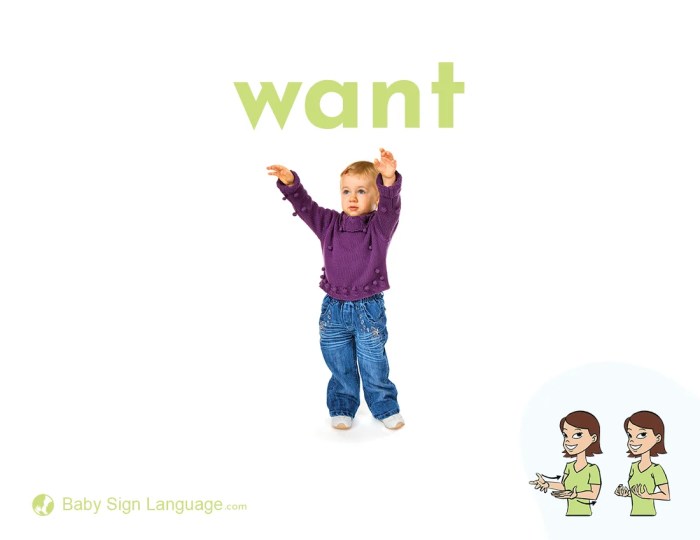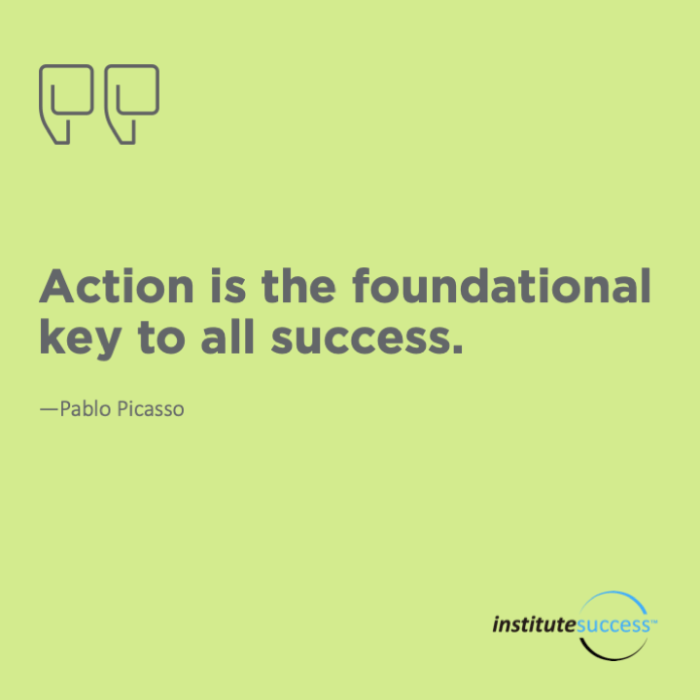Why you should find and develop your kids talents early – Why you should find and develop your kids’ talents early is a crucial question for every parent. Early identification and nurturing of a child’s potential can unlock a world of opportunities, fostering confidence, creativity, and resilience. This exploration delves into various methods for spotting talents, strategies for nurturing them, and the long-term benefits, while also addressing potential pitfalls and the importance of creating a supportive environment.
Unveiling a child’s unique abilities early allows parents to tailor their approach to learning, supporting their natural inclinations and boosting their self-esteem. This can significantly impact their academic performance and future career choices. The key is a balanced approach, avoiding excessive pressure and recognizing the importance of play, social interaction, and emotional well-being.
Early Talent Identification
Unveiling a child’s hidden potential is a rewarding journey. Identifying and nurturing talents early can unlock a child’s passions and pave the way for future success and fulfillment. However, it’s crucial to approach this process with sensitivity and a focus on fostering genuine interest rather than forcing skills. Early identification isn’t about labeling a child, but about observing their natural inclinations and providing opportunities for exploration.Early identification of potential talents involves a multifaceted approach that considers various factors.
Understanding a child’s personality, learning style, and environment plays a significant role in recognizing their unique strengths and interests.
Methods for Identifying Potential Talents
Identifying a child’s potential talents involves a combination of methods, each with its own strengths and limitations. Observation, assessments, and play-based activities provide valuable insights into a child’s inclinations. Crucially, these methods should be used in conjunction to paint a comprehensive picture of the child’s abilities and interests.
Observation
Careful observation is a fundamental aspect of early talent identification. Parents and educators should pay close attention to a child’s spontaneous actions, expressions of interest, and preferred activities. Do they gravitate towards specific subjects or activities? Do they exhibit curiosity and eagerness to learn? Understanding a child’s natural tendencies often reveals their inherent talents.
For example, a child who frequently builds elaborate structures with blocks might display a natural aptitude for spatial reasoning and design. Similarly, a child who loves to sing or dance might possess a natural talent for music or performing arts.
Assessments
Various assessments, such as developmental screenings and aptitude tests, can provide objective data on a child’s abilities. However, it’s essential to remember that these assessments should not be the sole determinant of a child’s potential. These tools are best utilized as a supplementary measure to support observations and other methods. Developmental screenings can identify potential delays or strengths in various areas, while aptitude tests can gauge a child’s strengths in specific subjects or skills.
These tests, when combined with other methods, can provide valuable insights into a child’s profile.
Nurturing your child’s talents early is crucial for their growth and future success. It’s about recognizing their unique abilities, like Richard Hamming’s keen insights in Richard Hamming’s 14 lessons for success scientist , and encouraging their development. By focusing on these strengths, you’re setting them up for a more fulfilling and potentially successful life path, fostering a love for learning and problem-solving.
This early identification and development will empower them to explore diverse avenues and ultimately achieve their goals.
Play-Based Activities
Play provides a valuable opportunity to observe a child’s interests and aptitudes in a relaxed and engaging environment. Through play, children can freely explore their creativity, problem-solving skills, and social interaction. Providing opportunities for imaginative play, creative arts, and problem-solving activities can reveal a child’s natural inclinations. For example, a child who enjoys building elaborate role-playing scenarios might possess a knack for storytelling or drama.
Similarly, a child who shows an interest in science experiments or nature exploration might exhibit a natural inclination towards scientific inquiry.
Considering Personality and Learning Style
Recognizing a child’s personality and learning style is paramount. An introverted child might excel in individual activities like drawing or writing, while an extroverted child might flourish in team-based sports or theatrical productions. Understanding a child’s learning style – whether visual, auditory, or kinesthetic – can help tailor activities and assessments to best suit their needs. For instance, a kinesthetic learner might thrive in hands-on science experiments, while a visual learner might benefit from visual aids and diagrams.
Consider the child’s unique characteristics and individual strengths when assessing their potential.
Comparison of Talent Identification Methods
| Method | Description | Pros | Cons | Age Appropriateness |
|---|---|---|---|---|
| Observation | Systematic watching and recording of a child’s behavior and interests. | Identifies natural inclinations, cost-effective, adaptable. | Subjective, time-consuming, potential bias. | Preschool – adolescence |
| Assessments | Formal or informal tests to measure cognitive or skill development. | Provides objective data, identifies specific strengths/weaknesses. | Can be stressful, may not capture creativity or social skills, may not reflect the child’s full potential. | Preschool – adolescence (depending on assessment type) |
| Play-Based Activities | Engaging children in activities that encourage exploration, creativity, and problem-solving. | Fun and engaging, fosters creativity, reveals hidden talents. | Subjective, requires careful observation, limited to specific areas. | Preschool – adolescence |
Nurturing and Developing Talents: Why You Should Find And Develop Your Kids Talents Early
Identifying a child’s talents is just the first step. The real magic happens when we actively nurture and develop those talents, fostering not only skill but also a love of learning and a sense of accomplishment. This requires a holistic approach, considering the child’s emotional, social, and intellectual growth alongside their specific talents. A supportive environment and tailored strategies are crucial for turning potential into a flourishing passion.Developing a child’s talents isn’t about pushing them towards unrealistic expectations or creating a miniature version of a famous prodigy.
It’s about recognizing their unique strengths, providing opportunities for exploration, and fostering a growth mindset where they feel comfortable taking risks and learning from their mistakes. It’s about building confidence and encouraging a lifelong love of learning.
Strategies for Nurturing Identified Talents
Developing a child’s identified talents requires a multi-faceted approach. It’s not just about providing structured lessons; it’s about creating opportunities for exploration, experimentation, and expression. Parents, educators, and mentors play crucial roles in fostering this growth.
- Creating a Supportive Environment: A supportive environment is paramount. This includes encouraging curiosity, celebrating effort and progress, and providing constructive feedback, rather than focusing solely on results. Children thrive in environments where they feel safe to take risks and explore their interests without fear of judgment. Praise should be directed at the effort, not just the outcome.
- Personalized Learning Experiences: Recognizing that every child learns differently is crucial. Tailoring learning experiences to a child’s specific talents and learning style will enhance engagement and foster deeper understanding. This could involve adapting lesson plans, incorporating hands-on activities, or finding resources that resonate with the child’s interests. For example, a child with a talent for music might benefit from attending a summer music camp, while a child with a knack for problem-solving might thrive in a coding club.
- Mentorship and Guidance: Mentorship from experienced individuals in the child’s area of interest can be incredibly valuable. A mentor can provide guidance, encouragement, and insights, helping the child refine their skills and navigate challenges. Mentorship can be formal (e.g., a tutor) or informal (e.g., a passionate hobbyist). Finding a role model or someone who is passionate about the same area can inspire and motivate the child.
Role of Parents, Educators, and Mentors
Parents, educators, and mentors all have a vital role in nurturing a child’s talents. Their support, encouragement, and guidance can significantly impact the child’s development.
- Parents’ Role: Parents are the primary educators in a child’s early years. They can create a supportive environment at home, encouraging exploration and providing opportunities for the child to develop their talents. This might involve setting aside dedicated time for activities, attending workshops, or simply engaging in conversations about the child’s interests.
- Educators’ Role: Educators can identify and nurture talents within the classroom setting. This could involve incorporating activities that engage the child’s specific strengths, providing extra support, or connecting the child with resources outside of the school. For example, a teacher might notice a child’s artistic talent and encourage them to join the school’s art club.
- Mentors’ Role: Mentors provide specialized guidance and support. They can provide feedback, introduce the child to new opportunities, and help the child refine their skills. This guidance can be crucial in helping the child develop their talent and reach their full potential.
Examples of Activities and Programs
Numerous activities and programs can be used to enhance a child’s talents. These can range from formal classes to informal experiences. The key is to find activities that engage the child and allow them to explore their interests.
- Music Lessons: Structured music lessons can help children develop their musical skills, from playing an instrument to composing music.
- Art Classes: Art classes can provide a space for children to explore different mediums and techniques, fostering creativity and artistic expression.
- Coding Clubs: Coding clubs can introduce children to the world of technology and problem-solving, fostering logical thinking and digital literacy.
Development Stages and Strategies
The following table Artikels different development stages and corresponding strategies for nurturing talents.
| Stage | Age Range | Focus Areas | Recommended Activities |
|---|---|---|---|
| Early Childhood (Preschool) | 3-5 years | Exploration, Curiosity, Basic Skills | Play-based activities, sensory experiences, creative arts, storytelling, simple musical instruments |
| Elementary School | 6-12 years | Skill Development, Interest Exploration | Specialized classes (e.g., music, art, sports), joining clubs, participating in competitions, after-school programs |
| Middle School/Junior High | 13-15 years | Refinement, Specialization | Advanced classes, workshops, mentoring programs, pursuing hobbies, participating in extracurricular activities |
| High School | 16-18 years | Application, Preparation for Future | Advanced training, internships, competitions, pursuing higher education opportunities |
Benefits of Early Development
Identifying and nurturing a child’s talents early on can unlock a wealth of potential benefits, setting them on a path to greater success and fulfillment. It’s not just about finding a future prodigy; it’s about fostering a love of learning, building confidence, and cultivating essential life skills. By recognizing and encouraging these talents early, we equip children with the tools they need to thrive in all aspects of their lives.Early development is more than just recognizing a child’s aptitude; it’s about providing the right environment and support to nurture their passions.
This proactive approach empowers children to explore their interests, develop their skills, and ultimately achieve their full potential. This proactive approach helps shape a well-rounded individual.
Advantages for Future Success
Early talent development equips children with a significant advantage in their future academic and career paths. A child who has explored and developed their talents from a young age is often more motivated, focused, and adaptable to learning new things. This early exposure builds a strong foundation for future success. They are more likely to excel in their chosen field, as well as handle challenges and adapt to new situations more effectively.
This proactive approach fosters a love of learning and paves the way for future success.
Fostering Confidence, Creativity, and Resilience
Developing a child’s talents early on fosters a sense of confidence and accomplishment. As children explore and master new skills, they build self-esteem and a belief in their abilities. This process enhances their creativity and problem-solving skills. They become more confident in their ability to tackle new challenges and adapt to different situations. The early development of these skills often leads to increased resilience.
This confidence, creativity, and resilience are not just academic advantages; they are vital life skills that empower children to navigate challenges and embrace opportunities throughout their lives.
Impact on Academic Performance and Career Choices
Early talent development can significantly impact a child’s academic performance. By focusing on their strengths and interests, children become more engaged and motivated in their studies. This often leads to higher grades, better attendance, and a deeper understanding of the subject matter. As they explore different areas of interest, they begin to form a clearer understanding of their future career aspirations.
This clarity of purpose and the skills developed early on can greatly influence their career choices. The opportunities available to them can increase substantially with the early development of talents.
Specific Examples of Increased Opportunities
Children who develop their talents early often have more opportunities to participate in specialized programs, competitions, and workshops. For example, a child with a talent for music might have the chance to join a youth orchestra or participate in music camps. Similarly, a child with a knack for math or science might attend coding camps or STEM programs.
Nurturing your child’s talents early is crucial for their overall development. It’s about identifying those sparks of passion and fostering them into something amazing. While you’re exploring these hidden talents, remember to treat yourself with some delicious cake frosting recipes – like these fantastic nomnomnom 4 flavourful cake frosting recipes that you cannot miss. Ultimately, early talent development provides a solid foundation for a fulfilling life, whether it’s in art, music, sports, or any other field.
These experiences provide invaluable learning opportunities and expose them to a wider range of possibilities. This often leads to a broader understanding of potential career paths. Early development opens doors to diverse experiences, allowing for more choices and better decision-making in the future.
Correlation Between Early Talent Development and Long-Term Benefits
| Developmental Area | Early Intervention | Potential Outcome |
|---|---|---|
| Creativity | Encouraging artistic expression, providing opportunities for experimentation, and fostering a supportive environment | Increased problem-solving skills, innovative thinking, and a stronger sense of self-expression |
| Academic Performance | Identifying and nurturing strengths in specific subjects, providing personalized learning experiences, and encouraging active participation | Higher grades, improved attendance, and a deeper understanding of subject matter |
| Confidence | Providing opportunities for success, acknowledging and celebrating achievements, and building a supportive network | Increased self-esteem, resilience, and the ability to navigate challenges with greater ease |
| Resilience | Equipping children with coping mechanisms for setbacks and challenges, encouraging perseverance, and promoting a growth mindset | Greater ability to bounce back from failures, adapt to change, and overcome obstacles |
| Career Choices | Exploring different career paths through workshops, internships, and mentoring opportunities, aligning education with interests | More informed and confident career choices, leading to a greater sense of purpose and fulfillment |
Potential Pitfalls and Considerations
![[post_When Trials Come][post_Critics][post_Confronting Adversity] Why you should find and develop your kids talents early](https://maestrousa.com/wp-content/uploads/2025/07/GettyImages-844423590-1.jpg)
While identifying and nurturing early talent is beneficial, it’s crucial to acknowledge potential pitfalls. A singular focus on maximizing a child’s abilities can inadvertently overshadow other essential aspects of their development. A balanced approach that considers play, social interaction, and emotional well-being is vital for fostering a well-rounded individual. This section explores the potential drawbacks of an overly focused approach and suggests strategies for navigating these challenges.
The Risks of Overemphasis
Overemphasizing early talent development can lead to unintended consequences. Children might experience pressure to constantly perform, potentially hindering their intrinsic motivation and enjoyment of the activity. This pressure can manifest as anxiety, stress, and a sense of obligation, ultimately diminishing the joy and natural curiosity that are fundamental to learning and growth. The long-term effects of such pressure can range from decreased creativity to a reluctance to try new things.
Balancing Talent Development with Other Needs
A crucial aspect of early talent development is balancing it with other critical aspects of childhood. Playtime, social interactions, and emotional well-being are fundamental to a child’s overall growth and development. A healthy childhood includes time for unstructured play, developing social skills, and learning to regulate emotions. Ignoring these aspects can lead to a skewed perspective on childhood, where academic or artistic pursuits dominate.
Examples of Negative Impacts
Excessive pressure can manifest in several ways. A child obsessed with achieving high scores might neglect friendships or extracurricular activities that contribute to their social development. Similarly, a young musician under constant pressure to perform at a professional level might lose their passion for music. These examples highlight the importance of maintaining a healthy balance between ambition and enjoyment.
Potential Pitfalls and Mitigating Strategies
- Over-scheduling: Over-scheduling can lead to burnout and stress for both the child and the parents. Children may feel overwhelmed by a packed schedule, impacting their ability to relax, play, and pursue their interests without pressure. Mitigation Strategy: Establish clear boundaries and prioritize activities that align with the child’s interests and developmental needs. Ensure adequate time for unstructured play, relaxation, and social interaction.
Regular breaks and down-time are essential for maintaining a healthy work-life balance.
- Pressure to Perform: Constant pressure to excel can lead to anxiety, stress, and a lack of enjoyment in the activity. Children might become less motivated and less likely to explore new interests. Mitigation Strategy: Focus on the process of learning and exploration, not just the outcome. Encourage curiosity and experimentation, and praise effort and progress, not just achievement.
Emphasize intrinsic motivation over external rewards.
- Neglect of Social and Emotional Development: A narrow focus on talent development can neglect crucial aspects of social and emotional development. This can impact a child’s ability to build relationships, manage emotions, and cope with challenges. Mitigation Strategy: Schedule time for social interaction and extracurricular activities that foster social skills. Encourage emotional expression and provide support for emotional well-being. Encourage participation in team sports or group activities.
Nurturing your child’s talents early is crucial for their growth and happiness. It’s like discovering a hidden gem – you unlock potential and help them thrive. Think about how valuable a friend is who expresses their thoughts honestly, like the article about 10 reasons love friend who always speaks their mind. This open communication mirrors the confidence and clarity that comes from pursuing a passion.
Early development fosters a similar resilience and self-assuredness, leading to a more fulfilled and successful future.
Preventing Over-Scheduling
Over-scheduling is a common pitfall. Parents often feel compelled to maximize their children’s potential, leading to packed schedules that hinder a child’s well-being. The key to avoiding over-scheduling is to prioritize activities and create a realistic schedule that incorporates downtime, play, and relaxation. A balanced schedule that allows for both structured and unstructured activities is essential.
Creating a Supportive Environment
Nurturing a child’s talents isn’t just about identifying them; it’s crucial to cultivate an environment where those talents can flourish. A supportive atmosphere is the bedrock upon which a child’s confidence and passion for learning are built. This environment allows children to explore their interests freely, take risks, and develop a growth mindset. A supportive environment encourages persistence, resilience, and a love for learning, ultimately leading to greater success in all areas of life.A supportive environment isn’t simply the absence of criticism; it’s actively fostering a positive attitude toward learning and trying new things.
Children need to feel safe expressing their ideas, even if they’re different or imperfect. This involves praising effort and process over just outcomes, encouraging experimentation, and accepting setbacks as learning opportunities. This proactive approach empowers children to embrace challenges and develop resilience.
Fostering a Positive Attitude Toward Learning
A positive attitude toward learning is cultivated by celebrating effort and progress, not just achievements. Praising the process of learning, the strategies used, and the persistence shown in overcoming challenges is more effective than simply rewarding the outcome. Children need to understand that mistakes are a natural part of the learning process, and that it’s the willingness to learn from them that truly matters.
Promoting a Growth Mindset
A growth mindset encourages children to believe that their abilities and intelligence can be developed through dedication and hard work. This is fostered by emphasizing the importance of effort, persistence, and learning from mistakes. Instead of focusing on fixed traits, parents and educators should highlight the process of learning and the value of continuous improvement. Children with a growth mindset are more likely to embrace challenges, persevere through setbacks, and view failures as opportunities for growth.
Building Resilience
Resilience is the ability to bounce back from adversity. Children who are resilient are better equipped to handle challenges and setbacks. By providing a safe space for children to explore their interests and try new things, while also encouraging them to learn from mistakes, parents and educators can cultivate resilience. Modeling resilience in their own lives is a powerful way to teach children how to cope with difficult situations.
Suggestions for Building a Supportive Environment
- Create a dedicated space for learning and exploration, fostering a sense of ownership and independence.
- Encourage curiosity and questioning, recognizing that these are essential components of the learning process.
- Provide opportunities for children to engage in activities that spark their interests and encourage them to explore their passions.
- Encourage participation in a variety of extracurricular activities to broaden their experiences and discover new talents.
- Establish clear communication channels, allowing children to express their needs and concerns without fear of judgment.
- Offer constructive feedback that focuses on improvement rather than criticism.
- Celebrate effort and persistence, regardless of outcomes, reinforcing the value of the learning process.
Illustrative Table of Supportive Environment Aspects, Why you should find and develop your kids talents early
| Aspect | Description | Examples |
|---|---|---|
| Encouragement | Providing positive reinforcement and support for effort and progress, not just results. | “I’m impressed by how you kept trying!” or “That’s a great strategy you used.” |
| Open Communication | Creating a safe space for children to express their thoughts, feelings, and questions. | Active listening, asking open-ended questions, and responding empathetically. |
| Growth Mindset | Emphasizing the importance of effort, learning from mistakes, and continuous improvement. | “I’m proud of how much you’ve improved!” or “That’s a great learning experience, what did you learn?” |
| Risk-Taking | Creating a supportive environment where children feel comfortable taking risks and exploring their interests. | Allowing children to experiment, make mistakes, and learn from them without fear of judgment. |
| Celebrating Effort | Highlighting the importance of effort and persistence, regardless of the outcome. | “I admire your perseverance!” or “It’s great that you tried your best.” |
Long-Term Impact and Sustainability

Early talent development isn’t just about identifying a skill early; it’s about fostering a lifelong passion and a sustainable career path. It’s crucial to understand that nurturing a child’s talents requires a long-term perspective, acknowledging that interests and aptitudes can evolve and change over time. The key is to create a supportive environment that encourages exploration, adaptation, and a love for learning, regardless of the specific path they choose.This journey is not a race to a predefined finish line.
Instead, it’s a continuous exploration of possibilities, where children are empowered to discover their strengths and passions. By providing the right support and guidance, we can help them develop resilience, adaptability, and a deep understanding of their own potential, which ultimately translates into a fulfilling and successful life.
Long-Term Impact on Children’s Lives and Careers
Early identification and nurturing of talents have a profound impact on children’s lives and future careers. Children who develop a strong foundation in their area of interest often demonstrate higher levels of intrinsic motivation and a deeper understanding of their strengths. This, in turn, can lead to greater success in their chosen field, whether it’s a traditional career path or a more unconventional one.
They’re more likely to embrace challenges, persist through setbacks, and ultimately find greater fulfillment in their work. Furthermore, developing a love for learning in childhood can shape a lifelong commitment to continuous learning and adaptation.
Adapting Strategies as Children Grow
Children’s interests and talents are not static. As they grow, their perspectives change, and their passions may evolve. It’s crucial to recognize and adapt strategies to match their evolving needs and interests. This requires a willingness to adjust the approach, offering new opportunities and challenges that remain aligned with their current stage of development and interests. Rigidity in the initial approach often leads to a decline in motivation, so maintaining flexibility is key.
Maintaining Motivation and Enthusiasm
Maintaining a child’s motivation and enthusiasm for their talents over time is crucial for long-term success. This requires a shift from a focus on rigid skill development to fostering a love of learning and exploration. Encouraging curiosity, providing opportunities for creativity, and offering positive reinforcement are essential elements of maintaining their engagement. Furthermore, allowing for experimentation and exploring different avenues related to their talents can keep them excited and engaged.
- Providing a supportive environment: This involves creating an atmosphere where children feel safe to explore their interests, experiment with different approaches, and express their ideas without fear of judgment. Encourage open-ended discussions and collaboration with others who share similar interests.
- Offering new challenges: Introducing new and more complex challenges keeps the learning process engaging and exciting. This could be a new technique, a more demanding project, or a collaboration with other enthusiasts.
- Encouraging self-reflection: Regular reflection on their progress, challenges faced, and lessons learned is invaluable. This allows them to identify their strengths, weaknesses, and areas for improvement, fostering self-awareness and ownership of their learning journey.
Transitioning from Early Development to Continued Learning
The transition from early talent development to continued learning and exploration is often smoother if the approach is viewed as a continuous journey. Encourage children to explore related fields, connect with mentors, and participate in activities that challenge and stimulate their minds. Encouraging a love for learning beyond the specific talent is key to long-term success.
- Encourage exploration: Introduce them to related fields, explore other possibilities, and encourage experimentation. This could involve attending workshops, taking classes, or joining clubs related to their talents.
- Mentorship: Connecting with mentors who have experience in the field can provide invaluable guidance and support as they progress.
- Building a network: Encourage networking with other enthusiasts, allowing them to share experiences, learn from others, and gain inspiration from their peers.
Maintaining Motivation and Enthusiasm Over Time
| Age | Focus Areas | Strategies |
|---|---|---|
| Preschool-Elementary | Developing foundational skills, exploring interests | Play-based learning, providing varied activities, fostering curiosity, positive reinforcement, encouragement of experimentation |
| Middle School | Exploring different avenues, refining skills, developing passion | Mentorship programs, workshops, competitions, challenging projects, encouraging independent learning |
| High School-Adulthood | Specialization, applying skills, career exploration | Internships, apprenticeships, higher education, seeking guidance from professionals, continuous learning |
Last Recap
Ultimately, nurturing a child’s talents early is about empowering them to discover their passions and thrive. By identifying their strengths, providing supportive environments, and understanding potential challenges, parents can pave the way for a fulfilling and successful future. Early development is not just about future careers; it’s about fostering well-rounded individuals with a love of learning and a zest for life.










